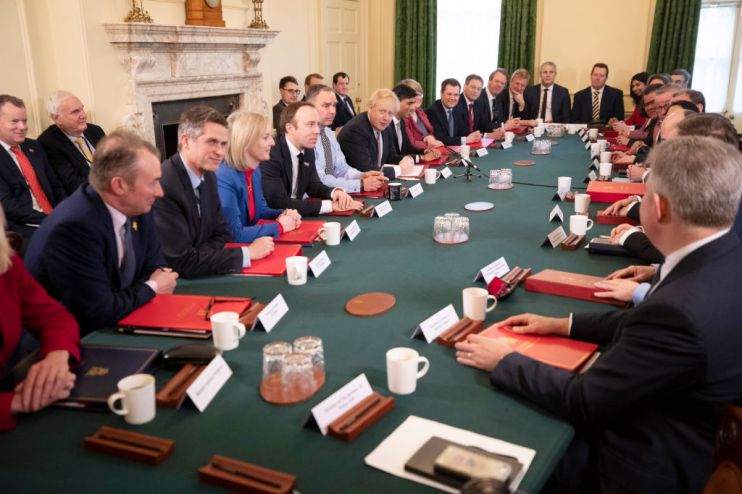Boris Johnson’s cabinet split over coronavirus lockdown period

Boris Johnson is reportedly dealing with a cabinet split between those who want to end the coronavirus lockdown early and those who want to take a more cautious approach.
Various media reports over the weekend said chancellor Rishi Sunak and Cabinet Office minister Michael Gove were pushing for the lockdown to be eased to avoid longterm economic damage, while health secretary Matt Hancock favoured a longer period.
The three senior ministers are a part of a so-called “quad” of ministers, along with foreign secretary Dominic Raab, who are leading the government’s Covid-19 response while Johnson is recovering from coronavirus.
Those that are backing a shorter lockdown among the wider cabinet have been dubbed as hawks, while those wanting a more cautious approach have been dubbed as doves.
The Sunday Times reported yesterday that Gove had told the quad that he believed that “we need to run this hot” and lift some restrictions while new infections are at a lower rate.
Johnson’s senior adviser Dominic Cummings has reportedly backed Hancock, while cabinet secretary Mark Sedwill has aligned himself with the hawks.
The Times reports today that Johnson is more likely to side with the doves and is reticent to ease the lockdown too soon as it could lead to a second peak of infections.
A Downing Street report leaked over the weekend discussed a proposal for a three-stage lockdown plan, with the possibility of schools and some shops opening next month.
However, government sources have poured cold water on the suggestion that social distancing measures could be eased so soon.
Sunak and others have reportedly taken a more hawkish approach due to the diabolical economic projections done by the Treasury.
The Times reports today that internal Treasury estimates are predicting an economic contraction in the second quarter that is greater than the 35 per cent drop in GDP predicted by the Office for Budget Responsibility (OBR).
The Bank of England today said that a quarterly drop of 35 per cent in GDP was “not unrealistic”.